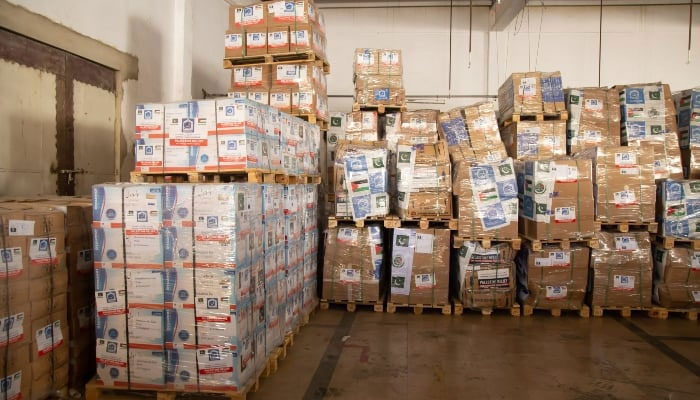Govt mulls 5-20% FED on packaged foods
20% FED is projected to saddle packaged-food industry with 25% drop in revenues
ISLAMABAD: The government is considering options for imposing a 5-20pc Federal Excise Duty (FED) on a wide range of Fast-Moving Consumer Goods (FMCG) categories, including biscuits and confectionery items, in the budget for 2025-26. This FED, if implemented, would have significant ramifications for the affected industries, severely threatening margins, affordability, demand, employment, and even overall tax revenues. The excise duty on processed foods will inevitably be passed on to consumers — raising prices of everyday staples like biscuits, juices, frozen foods, and ready-to-eat meals. In a country where the average household spends a disproportionately large share of its income on food, these increases are economically damaging.
A 20pc FED is projected to saddle the packaged-food industry with a 25pc drop in revenues, undermine a 20pc jobs and 15pc revenue loss on downstream sectors, and deliver only a marginal net gain to the exchequer once offset by lost sales and income taxes — while driving consumers to the untaxed, unregulated economy.
Contraction of the organised (formal) packaged-food industry experience from the packaged-juice sector shows that adding a 20pc FED on top of existing 18pc GST drove formal sales down by nearly 45pc, from an expected Rs71 billion in 2022-23 to around Rs42 billion in 2023-24. With retail prices up, demand falls sharply — industry insiders project a 25-30pc drop in volumes, translating into similar revenue losses across the board.
-
 Alix Earle And Tom Brady’s Relationship Status Revealed After Cosy Super Bowl 2026 Outing
Alix Earle And Tom Brady’s Relationship Status Revealed After Cosy Super Bowl 2026 Outing -
 Why King Charles Has ‘no Choice’ Over Andrew Problem
Why King Charles Has ‘no Choice’ Over Andrew Problem -
 Shamed Andrew Wants ‘grand Coffin’ Despite Tainting Nation
Shamed Andrew Wants ‘grand Coffin’ Despite Tainting Nation -
 Keke Palmer Reveals How Motherhood Prepared Her For 'The Burbs' Role
Keke Palmer Reveals How Motherhood Prepared Her For 'The Burbs' Role -
 King Charles Charms Crowds During Lancashire Tour
King Charles Charms Crowds During Lancashire Tour -
 ‘Disgraced’ Andrew Still Has Power To Shake King Charles’ Reign: Expert
‘Disgraced’ Andrew Still Has Power To Shake King Charles’ Reign: Expert -
 Why Prince William Ground Breaking Saudi Tour Is Important
Why Prince William Ground Breaking Saudi Tour Is Important -
 AOC Blasts Jake Paul Over Bad Bunny Slight: 'He Makes You Look Small'
AOC Blasts Jake Paul Over Bad Bunny Slight: 'He Makes You Look Small' -
 At Least 53 Dead After Migrant Boat Capsizes Off Libya
At Least 53 Dead After Migrant Boat Capsizes Off Libya -
 'God Of War' Announces Casting Major Key Role In Prime Video Show
'God Of War' Announces Casting Major Key Role In Prime Video Show -
 Real Reason Prince William, Kate Broke Silence On Andrew Scandal Revealed
Real Reason Prince William, Kate Broke Silence On Andrew Scandal Revealed -
 Drew Barrymore Responds To 'Charlie's Angels' Costar's Comments About Her
Drew Barrymore Responds To 'Charlie's Angels' Costar's Comments About Her -
 Shakira Slips Hard On Stage During Life Show
Shakira Slips Hard On Stage During Life Show -
 King Charles Speaks Out Over Andrew's Scandal: 'Stand Ready To Help Police'
King Charles Speaks Out Over Andrew's Scandal: 'Stand Ready To Help Police' -
 Dax Shepard Recalls Horrifying Accident That Almost Killed Him
Dax Shepard Recalls Horrifying Accident That Almost Killed Him -
 Logan Paul's Bodyguard Hits Fan On Super Bowl Day
Logan Paul's Bodyguard Hits Fan On Super Bowl Day




